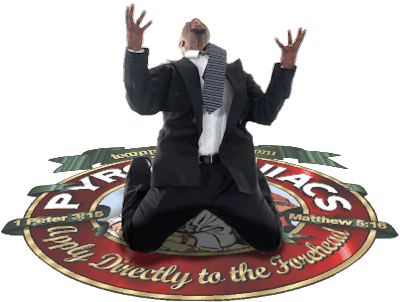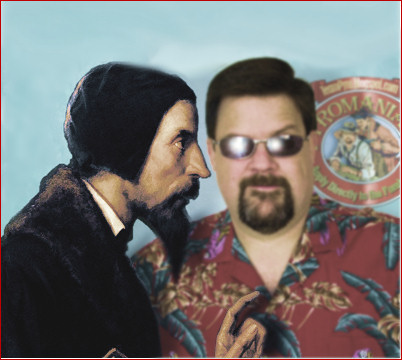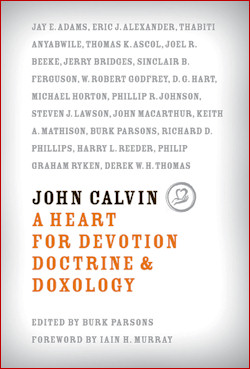(Kregel: 2009; 269 pages)
I have always loved the format of these multi-perspective books.
Spokesmen for particular views on disputed issues (prophecy, ordinances, doctrines) present their own positions relatively concisely, then interact with each other. With this volume, Kregel presents a symposium of sorts on the vital issue of the will of God.
Douglas Huffman edits the work, and brings a fair bit to the subject. Huffman researched this topic for his MA thesis at Trinity, and starts the book off with a useful introduction (13-32). In it, he defines terms, sets up the book, and lays out case studies with which each proponent must deal: people in dicey situations, needing to make decisions. It is a creative touch, and a great opportunity for each "school" to show how the rubber meets the road
However, at the book's end Huffman provides a conclusion that I found more
 hazy than helpful ("Hey kids — what if they're all right?"; 235-248). But, after that he provides a jewel of a Bibliography, which is labeled according to the authors' perspectives (249-256).
hazy than helpful ("Hey kids — what if they're all right?"; 235-248). But, after that he provides a jewel of a Bibliography, which is labeled according to the authors' perspectives (249-256).In the body of the book, three views are presented.
First to sally forth are Henry and Richard Blackaby, presenting the "Specific-Will" view (33-85). I have already interacted with this at length here, in my usual ambivalent and mealy-mouthed way. To wit:
This chapter is just about the single most appalling trainwreck I've read in recent memory, whether viewed exegetically, hermeneutically, theologically, or pastorally. The implications, if taken and followed out seriously by anyone (—God forbid!), are absolutely catastrophic.I still agree with me.
Then, the first to evaluate it is Garry Friesen, author of Decision-Making and the Will of God, representing the "Wisdom" view. To my everlasting bafflement, Friesen comes across in a manner that...okay, I deleted what I wrote first, took a few deep breaths, and will make this much nicer comment instead: it makes me wonder two things:
- Does Friesen really believe that his approach is the Biblical approach? (I certainly do, and I surely think Friesen does.)
- Does Friesen just not see what a prescription for a living nightmare the Blackaby approach is? (I certainly do... and, reading this, I have to wonder whether Friesen does.)
 Friesen actually says he "was impressed with the biblical [?!!] and effective argument for" the Blackaby view, and further dubs it a model presentation (85, emphasis added). He speaks glowingly of the exquisite care in handling Scripture and pastoral wisdom with which their essay glowed (86). My mouth literally hung open. I wondered whether I was in Bizarro-world. But then Friesen gets down to business and makes a very effective Biblical critique of the Blackaby view.
Friesen actually says he "was impressed with the biblical [?!!] and effective argument for" the Blackaby view, and further dubs it a model presentation (85, emphasis added). He speaks glowingly of the exquisite care in handling Scripture and pastoral wisdom with which their essay glowed (86). My mouth literally hung open. I wondered whether I was in Bizarro-world. But then Friesen gets down to business and makes a very effective Biblical critique of the Blackaby view.Then Gordon T. Smith critiques from the "Relational" perspective. He's a good writer, and his critique is effective, but lacks the rigorously Biblical edge Friesen eventually brought to bear.
Next up is Garry Friesen for the "Wisdom" view (101-159). Again, inexplicably, in presenting his view, Friesen begins... by praising the Blackabys! "Their books are examples of speaking the truth in love" (101, emphasis added). Well, if their books are "the truth," then I take it Friesen will be retracting his own? Because if the Blackabys are right, then Friesen's central contention is nonsense — and vice-versa.
 commending their views and approach as Biblical and effective and true (bad!).
commending their views and approach as Biblical and effective and true (bad!).One more word on that. The Blackabys do not return the favor. Clearly, Friesen's powerful Biblical critique and solid case have shaken them — though not enough. Even when they're not supposed to be critiquing Friesen, they do, and not particularly kindly, displaying none of the flattery Friesen shows them.
I dwell on this to make the point we often make and try to model here: critical truth is worth a spirited, bare-knuckled confrontation. Some ideas badly need to be exposed and body-slammed for the wretched mishandling of Scripture that they are. Ideas I say; ideas. And ideas have consequences. As we saw in the metas for the previous posts, real people and real churches are hurt by the Blackabys' doctrine.
I think Friesen goes too far in showing charity towards the Blackabys, by seeming to embrace and coddle their harmful, un-Biblical ideas. If their teaching is un-Biblical, then I think our main concerns should be (A) the honor of God, who I think is misrepresented in this view; and (B) the people and churches whom this teaching harms.
Friesen comes to summarize his own view in four principles:
- "Where God commands, we must obey
- "Where there is no command, God gives us freedom (and responsibility) to choose
- "Where there is no command, God gives us wisdom to choose
- "When we have chosen what is moral and wise, we must trust the sovereign God to work all the details together for good" (103)

The Blackabys mock his view as invented (159), subjective (159), and not as popular as theirs (160; yes, they really do say that). They try to do a lot of damage-control, and bring out-of-context Scriptures in a weak attempt at propping up their position (i.e. maybe Philip had an inner impression, even though "Scripture does not identify" it as such [164]). To add to the list of hermeneutical and theological oddities noted in my previous posts, they reject the long-established Biblical categories of general and special revelation (166), and seem to reject Romans 9:19 as well (167).
Smith's critique is much more friendly and appreciative; he agrees with Friesen to a great extent, but fears that Friesen's approach by itself amounts to a sort of practical deism (170).
Which brings us to the "Relationship" view, presented by Smith himself (174-226), It is... a strange chapter. The view is a sort of mediating view between Friesen's and the Blackabys. Scripture is the basis, but the Christian life is about a relationship with Christ, which (to Smith) demands emotional and other communications of Christ ("speaking") to the believer, through the Spirit, apart from Scripture.
It is "strange" in that Smith does not actually build his specific case from Scripture, except the verses that depict the Christian as having a relationship with Christ. To fill in what is missing, Smith leans heavily — not on Scripture, but — on an assortment of later, uninspired writers (187-201). And what an assortment! I kid you not: Origen of Alexandria, Bernard of Clairvaux, and Ignatius Loyola. T
 he latter ges 4.5 pages. Thaaat's right, Ignatius — founder of the Jesuits, servant of Jesus, Mary and the Pope — has more of specific use to teach us about having a relationship with Christ than the Scriptures.
he latter ges 4.5 pages. Thaaat's right, Ignatius — founder of the Jesuits, servant of Jesus, Mary and the Pope — has more of specific use to teach us about having a relationship with Christ than the Scriptures.Smith then says that "This listening [to Christ, personally and intimately] ...is the foundation of our Christian experience—a listening evident in our attentiveness to the inner witness of the Spirit" (202). Yet he came nowhere near either exampling nor establishing such a "foundation" from Scripture, to my mind. Like the Blackabys, he insists on God "speaking" to us apart from Scripture; and like them, he made no case from Scripture that we should expect any such thing.
This is always remarkable and significant. Leaning so heavily on post-Biblical writers, many of them not Biblically orthodox, is (to me) a tacit admission that the case cannot be made from Scripture. Charismatics are forced to do exactly the same thing in explaining how to get baptized with the Spirit, how to tell when the Spirit is nudging you, how to get tongues, and so forth. I would think — I would hope! — that a little light would go on for such well-meaning souls. "Hm, if I can't make this case from Scripture, then maybe... just maybe...."
Friesen seizes on this, and deals it a kind but very effective blow (227-228). At the same time, Friesen is right to acknowledge that he stands to learn from Smith's stress on a heart-relationship with God, and that his view is often faulted for seeming mechanistic, though he intends no such thing (226).
Features: Bibliography, footnotes, indices.
In sum: another very solid contribution from Kregel, who deserves our thanks for delving into this vitally practical subject. Recommended.



 ohn Calvin excelled in every ministerial duty he ever set his hand to. He stood out in his own generation for the sheer power of his preaching and his amazing command of Scripture. His skill as an exegete and biblical commentator surpassed anyone the church had ever seen. His proficiency as a teacher of theology was likewise superior to all who came before him. His influence as a discipler of young men bore fruit that is still multiplying today. His competence as a church leader, his forcefulness as an apologist for the truth, and his remarkable ability to educate and motivate others were all highly renowned. In the words of William Cunningham, "Calvin was by far the greatest of the Reformers with respect to the talents he possessed, the influence he exerted, and the services he rendered in the establishment and diffusion of important truth."
ohn Calvin excelled in every ministerial duty he ever set his hand to. He stood out in his own generation for the sheer power of his preaching and his amazing command of Scripture. His skill as an exegete and biblical commentator surpassed anyone the church had ever seen. His proficiency as a teacher of theology was likewise superior to all who came before him. His influence as a discipler of young men bore fruit that is still multiplying today. His competence as a church leader, his forcefulness as an apologist for the truth, and his remarkable ability to educate and motivate others were all highly renowned. In the words of William Cunningham, "Calvin was by far the greatest of the Reformers with respect to the talents he possessed, the influence he exerted, and the services he rendered in the establishment and diffusion of important truth." But of all Calvin's extraordinary gifts, his aptitude as a writer is the one that most amplified all the others and secured Calvin's position in history. Calvin was a prolific, almost obsessive, writer. Practically everything he ever did by way of teaching, preaching, or debate was set down in writing and subsequently published—his sermons, his commentaries, his views on theology, his polemical exchanges over disputed points of doctrine and practice, and a large volume of his personal correspondence. No other mind in that generation is quite so well documented, and it is thanks largely to Calvin's own industriousness as a writer that we have that invaluable record.
But of all Calvin's extraordinary gifts, his aptitude as a writer is the one that most amplified all the others and secured Calvin's position in history. Calvin was a prolific, almost obsessive, writer. Practically everything he ever did by way of teaching, preaching, or debate was set down in writing and subsequently published—his sermons, his commentaries, his views on theology, his polemical exchanges over disputed points of doctrine and practice, and a large volume of his personal correspondence. No other mind in that generation is quite so well documented, and it is thanks largely to Calvin's own industriousness as a writer that we have that invaluable record. Calvin's collected works fill fifty-nine large volumes in the Corpus Reformatorum, a 101-volume set of crucial Reformation-era works. [Karl Gottlieb Bretschneider, et al., eds., Corpus Reformatorum, 101 vols. (Halle: Schwetske, 1863-1900). The Calvin works comprise Series 2 of that massive collection, Ioannis Calvini, Opera Quae Supersunt Omnia, vols. 29-87.] But as Robert Reymond points out, "even these do not exhaust Calvin's total literary output; twelve more volumes under the title Supplementa Calviniana . . . are available."
Calvin's collected works fill fifty-nine large volumes in the Corpus Reformatorum, a 101-volume set of crucial Reformation-era works. [Karl Gottlieb Bretschneider, et al., eds., Corpus Reformatorum, 101 vols. (Halle: Schwetske, 1863-1900). The Calvin works comprise Series 2 of that massive collection, Ioannis Calvini, Opera Quae Supersunt Omnia, vols. 29-87.] But as Robert Reymond points out, "even these do not exhaust Calvin's total literary output; twelve more volumes under the title Supplementa Calviniana . . . are available."

 he church wants mature Christians very greatly, and especially when there are many fresh converts added to it. New converts furnish impetus to the church, but her backbone and substance must, under God, lie with the mature members.
he church wants mature Christians very greatly, and especially when there are many fresh converts added to it. New converts furnish impetus to the church, but her backbone and substance must, under God, lie with the mature members.






 And in that, an adult child who has run away from the faith is a tragedy, but he is a tragedy the church can then deal with as with all adult tragedies of the same stripe. And if he has abandoned the faith, it is on his head and not his father's.
And in that, an adult child who has run away from the faith is a tragedy, but he is a tragedy the church can then deal with as with all adult tragedies of the same stripe. And if he has abandoned the faith, it is on his head and not his father's.


 The
The  BSERVE carefully the order in which our Lord puts the two blessings he mentions;—first, life through believing on him, and then food to sustain that life;—first, He that believeth on me hath everlasting life;" and next to that, "I am that bread of life." Life comes first, and food follows afterwards. It is impossible for a dead man to feed, or to be fed; only the living can eat and drink.
BSERVE carefully the order in which our Lord puts the two blessings he mentions;—first, life through believing on him, and then food to sustain that life;—first, He that believeth on me hath everlasting life;" and next to that, "I am that bread of life." Life comes first, and food follows afterwards. It is impossible for a dead man to feed, or to be fed; only the living can eat and drink.
 ne thing I have tried to keep an eye on whilst teaching theology in Sicily is
ne thing I have tried to keep an eye on whilst teaching theology in Sicily is  It seems that at a recent meeting of the Fundamental Baptist Fellowship International (FBFI), Dr. Dan Sweatt
It seems that at a recent meeting of the Fundamental Baptist Fellowship International (FBFI), Dr. Dan Sweatt 


 What? "Establish Elders"?
What? "Establish Elders"? That is: you need to be a little more informed about the world God made than a bookish knowledge of how the family works if you want to be an elder/pastor in God's church. You need to have lived the faith before you start theorizing about the faith.
That is: you need to be a little more informed about the world God made than a bookish knowledge of how the family works if you want to be an elder/pastor in God's church. You need to have lived the faith before you start theorizing about the faith.
 And if you don’t get the implication here, let me say it plainly: the pastorate/eldership is not for guys who are still working out their issues. And by that I mean this: it’s one thing to put someone in charge of a little to see if he can be trusted with more, and another to entrust the spiritual well-being of a flock of believers to someone who, himself, cannot be trusted with his own charge in his family. It’s ironic that ultimately the Bible says that the family is where we test men to see if they are suitable pastors and elders – because in our way of thinking, the family is more precious than the assembled believers. But in God’s economy, the church is where you put experienced men, and the family is where they gain that experience. The family is the lesser thing where men are tested, and the church is the greater thing where those who are qualified should go.
And if you don’t get the implication here, let me say it plainly: the pastorate/eldership is not for guys who are still working out their issues. And by that I mean this: it’s one thing to put someone in charge of a little to see if he can be trusted with more, and another to entrust the spiritual well-being of a flock of believers to someone who, himself, cannot be trusted with his own charge in his family. It’s ironic that ultimately the Bible says that the family is where we test men to see if they are suitable pastors and elders – because in our way of thinking, the family is more precious than the assembled believers. But in God’s economy, the church is where you put experienced men, and the family is where they gain that experience. The family is the lesser thing where men are tested, and the church is the greater thing where those who are qualified should go.



 nthony Trollope was a Victorian novelist whose output and popularity rivaled Dickens. His books aren't as well known today as the Dickens classics, but they are still easily available and Trollope still has a passionate following.
nthony Trollope was a Victorian novelist whose output and popularity rivaled Dickens. His books aren't as well known today as the Dickens classics, but they are still easily available and Trollope still has a passionate following. Trollope grew up in a poor but aristocratic family. His father, though related to the landed gentry, failed at practically everything he ever attempted. In later years Anthony's mother, Frances Trollope, scored some remarkable successes as a writer (achieving fame but not much critical acclaim with Domestic Manners of the Americans [1832] and several novels). But her earnings were not enough to overcome her husband's failures, and the family ultimately fled to Belgium so that Anthony's father could avoid debtors' prison.
Trollope grew up in a poor but aristocratic family. His father, though related to the landed gentry, failed at practically everything he ever attempted. In later years Anthony's mother, Frances Trollope, scored some remarkable successes as a writer (achieving fame but not much critical acclaim with Domestic Manners of the Americans [1832] and several novels). But her earnings were not enough to overcome her husband's failures, and the family ultimately fled to Belgium so that Anthony's father could avoid debtors' prison.

 ine language amuses the ear, as the tinkling of their little bells pleases the continental coach-horses, but it cannot satisfy the soul any more than the aforesaid tintinabulations can supply the place of corn and hay.
ine language amuses the ear, as the tinkling of their little bells pleases the continental coach-horses, but it cannot satisfy the soul any more than the aforesaid tintinabulations can supply the place of corn and hay.








